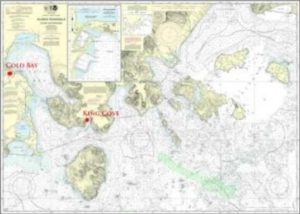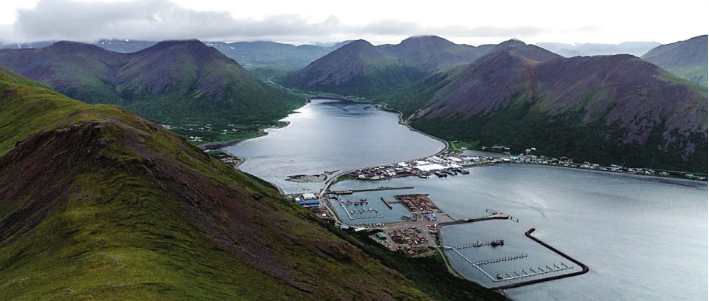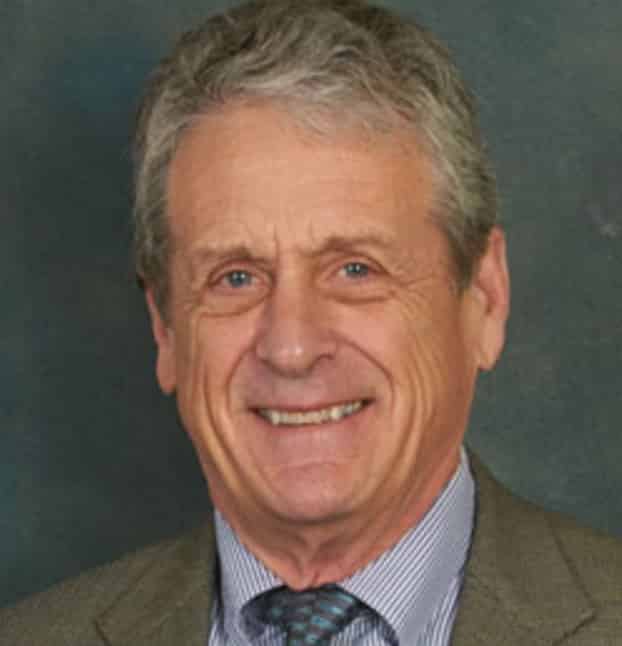
King Cove, AK—U.S. Senator Lisa Murkowski, R-Alaska, last Wednesday praised the U.S. Department of the Interior (Interior) for releasing a draft Supplemental Environmental Impact Statement (SEIS) that recommends a land exchange for a life-saving road that will connect the predominantly Aleut community of King Cove to the all-weather airport in nearby Cold Bay.
In its draft SEIS, Interior recommends a preferred action alternative that would facilitate a land exchange between the U.S. Fish and Wildlife Service (USFWS) and the King Cove Corporation (KCC), an Alaska Native Village Corporation created by Congress through the Alaska Native Claims Settlement Act (ANCSA; P.L. 92-103), in lieu of a reservation, whose members are Alaska Natives from King Cove and the surrounding area. The land exchange would facilitate the connection of two existing roads—one that already leads from King Cove to the refuge, and another from the refuge to the Cold Bay airport.
This short, gravel, one-lane, non-commercial connector road is necessary to protect the health, safety, and subsistence rights of the nearly 1,000 Alaska Natives who live in King Cove. At present, the only available options for emergency medical transportation are via small fixed-wing aircraft or boat, but only when weather and marine conditions allow.
The road would help end decades of needless pain, suffering, mental anguish, and bureaucratic frustration that have included well over 200 medevacs over the past decade alone. Most medevacs have occurred in dangerous conditions and dozens have been carried out by the U.S. Coast Guard, risking the lives of crews and patients alike and coming at significant expense to U.S. taxpayers. Since 1980, at least 20 lives have been lost due to the absence of a road, including the life of one individual earlier this year, who was stranded in triage in King Cove for 27 hours before passing away en route to Anchorage.
“There has never once been a moment of doubt in my mind that a life-saving road is the only way to truly protect the good people of King Cove. After a more than a year-long process, and after reviewing the options to protect residents’ health and safety at all times, a Democratic administration has sided with King Cove and determined that a life-saving road can be built safely, while also protecting the environment,”Murkowski said.
“I thank everyone at Interior for their work on a strong, defensible analysis that adds to the overwhelming case for a life-saving road. I spoke with Secretary Haaland this morning and thanked her for visiting King Cove with me, for listening to the people who actually live there about the environmental injustices they face every day, and for directing her team to make an honest recommendation to her about the path forward. That path forward is clearly a life-saving road, and we must now finish the job by finalizing the process so that a road can be built as soon as possible,”Murkowski added.
King Cove is located between two volcanoes near the end of the Alaska Peninsula, about 625 miles southwest of Anchorage. The small gravel airstrip outside of King Cove is typically closed by bad weather for more than 100 days each year. Many of the flights not canceled are impacted or delayed by wind, turbulence, fog, rain, or snow squalls; travel by boat is often impacted by waves that can top 12 feet and the lack of suitable dock infrastructure in Cold Bay. During medical emergencies, lives have been lost, babies have been born prematurely on boats, and seriously injured elders have been hoisted to the dock in Cold Bay via crab pots.
By comparison, the all-weather airport in Cold Bay, which is less than 30 miles from King Cove, has one of the longest runways in the state and is closed an average of just 10 days per year. The Cold Bay runway was funded by the federal government during World War II; many King Cove residents helped build the runway but have never been allowed to benefit from it.
If any community in the Lower 48 faced a similar circumstance, a road would be built to the nearest airport and hospital without a second thought. However, after the Alaska National Interest Lands Conservation Act (ANILCA) established the Izembek refuge in 1980, designating most of it as federal wilderness, King Cove was abruptly prevented from constructing an access road to Cold Bay. Residents were not consulted before ANILCA was signed into law, and Alaska Native elders tell stories of federal employees burning their subsistence cabins in the refuge after the law’s enactment.
Murkowski has prioritized a life-saving road for King Cove for decades. She added a provision to the Omnibus Public Lands Management Act of 2009 providing Secretarial discretion for a land exchange, only for then-Secretary Sally Jewell to heartlessly reject the congressionally approved agreement the day before Christmas Eve in 2013.
Amidst more than 200 medevacs since then, Murkowski has continued to seek support for a life-saving road. She held a hearing while Chairman of the Energy and Natural Resources Committee in 2016, drawing haunting testimony from a panel of witnesses. She has sent letters, made phone calls, delivered floor statements, taken countless meetings, and hosted federal officials in King Cove to make the case for the connector road.
In 2017, Murkowski, met with President Trump, who indicated his strong support for a life-saving road. She worked with then-Secretaries Ryan Zinke and David Bernhardt on land exchange agreements between Interior and KCC, but representatives of environmental groups (whose members do not lack access to emergency medical transportation) sued to halt them.
In April 2022, Murkowski visited King Cove with Secretary Haaland as part of her efforts to show why a life-saving road is crucial for the community. During the trip, Murkowski visited the King Cove School, where she was honored with an Aleut name, Sixsadag^ulux, which translates to “never breaks in two,” from the Agdaagux Tribe of King Cove. Secretary Haaland was honored with the name “Tang^ag^im Anadaa” meaning “mother bear.”
In May 2023, the USFWS issued a Notice of Intent in the Federal Register that it planned to prepare an SEIS to consider the effects of a potential land exchange of certain lands owned by the King Cove Corporation and/or the State of Alaska with certain lands owned by the U.S. government. While the draft SEIS released today is not a final decision, it is a major step forward. Sixsadag^ulux is grateful that support for a life-saving road for King Cove is stronger than ever, and hopeful that the people of King Cove’s prayers for protection are on the verge of finally being answered.
###[content id=”79272″]







